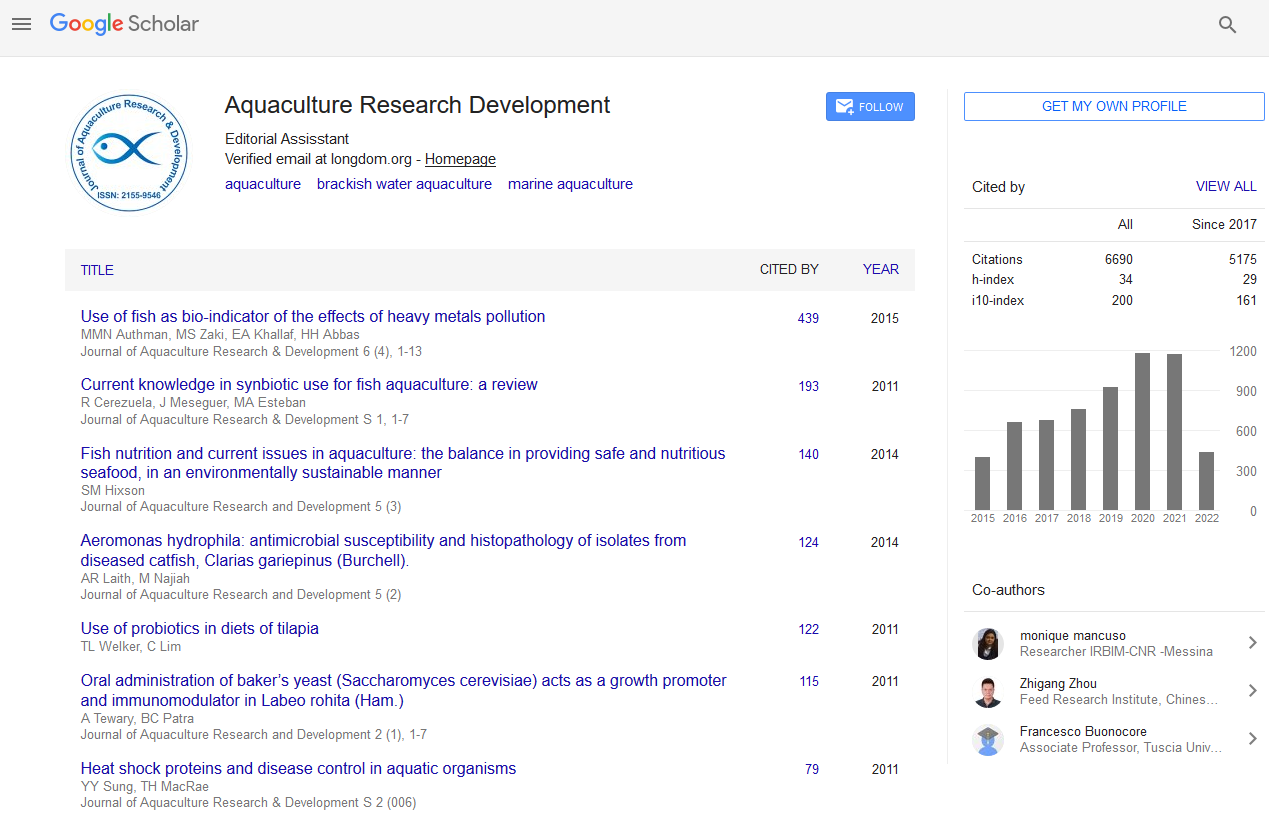PMC/PubMed Indexed Articles
Indexed In
- Online Access to Research in the Environment (OARE)
- Open J Gate
- Genamics JournalSeek
- JournalTOCs
- Scimago
- Ulrich's Periodicals Directory
- Access to Global Online Research in Agriculture (AGORA)
- Electronic Journals Library
- Centre for Agriculture and Biosciences International (CABI)
- RefSeek
- Directory of Research Journal Indexing (DRJI)
- Hamdard University
- EBSCO A-Z
- OCLC- WorldCat
- Scholarsteer
- SWB online catalog
- Virtual Library of Biology (vifabio)
- Publons
- MIAR
- University Grants Commission
- Euro Pub
- Google Scholar
Useful Links
Share This Page
Journal Flyer

Open Access Journals
- Agri and Aquaculture
- Biochemistry
- Bioinformatics & Systems Biology
- Business & Management
- Chemistry
- Clinical Sciences
- Engineering
- Food & Nutrition
- General Science
- Genetics & Molecular Biology
- Immunology & Microbiology
- Medical Sciences
- Neuroscience & Psychology
- Nursing & Health Care
- Pharmaceutical Sciences
Effect of resveratrol and genistein on Ã?6-desaturase expression and protein levels in Rainbow trout
5th Euro Global Summit on Aquaculture & Fisheries
March 30-31, 2017 Madrid, Spain
Claudia Grimm, Stefanie Staats, Gerald Rimbach and Carsten Schulz
Gesellschaft fuer Marine Aquakultur mbH, Germany
University of Kiel, Kiel, Germany
Scientific Tracks Abstracts: J Aquac Res Development
Abstract:
In order to spare natural marine resources, namely fish oil and fish meal, a general trend in aquaculture is the inclusion of alternative plant based products for fish nutrition. Especially fatty acid (FA) composition of plant oils differ substantially from fish oil. To generate more sustainable fish feed but guarantee an end product rich in omega-3 (n-3) FA, the combination of plant oils and phytochemicals in fish feeds is promising and was used in this study. Resveratrol (RV) and genistein (G) are two phytochemicals that, in in vitro experiments, interact with �?6-desaturase, the key enzyme in FA metabolism, and function as ligand for PPARα, a transcription factor involved in β-oxidation of fatty acids. Rainbow trout (36.35±0.03 g) were fed 9 diets with reduced fish oil levels (F4=4%, F2=2% and F0=0%) and inclusion of either RV (F4+RV, F2+RV and F0+RV) or G (F4+G, F2+G and F0+G) for 8 weeks. Both, RV and G affected FA composition of whole fish. 20:5 n-3 (EPA) and 22:6 n-3 (DHA) were significantly increased whereas 18:2 n-6 (LA) and 18:3 n-3 (ALA) were significantly reduced in fish fed the more vegetable diets F2 and F0 supplemented with RV. At the same time, protein levels of �?6-desaturase were significantly elevated in livers of fish fed diets supplemented with RV, especially F0+RV. mRNA expression of �?6-desaturase, PPARα and other target genes were significantly influenced by different fish oil levels but not by addition of RV or G. We were able to show in vivo that RV and G lead to increased �?6-desaturase enzyme level and further to elevated EPA and DHA levels in the fish. This study shows the potential for using especially RV in aquaculture diets low in fish oil and highlights the molecular mechanisms behind the regulation of FA synthesis under the influence of RV or G.
Biography :
Claudia Grimm has background in Biology with a focus on Aquatic Ecology. She is working in the current project in the Field of Fish Nutrition in Aquaculture. She works on classical questions concerning fish nutrition and also up to date trends like the reduction of marine resources in fish feeds. She covers all steps of nutritional research: diet formulation, diet production, feeding trial, sampling, sample preparation and analyses. She investigates molecular mechanisms behind promising approaches as well as the in vivo application. The combination of in vivo and in vitro experiments is of special interest to her.
Email: grimm@gma-buesum.de


